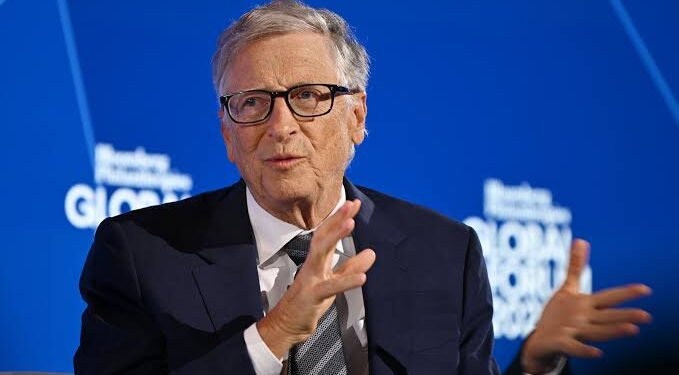Philanthropist and leading clean energy proponent, Bill Gates, has stunned the climate community, philanthropist and leading clean energy proponent after publishing a major essay, arguing that global resources must be strategically shifted away from the “doomsday” battle against climate change and toward fighting disease and hunger.
Gates, who founded Breakthrough Energy to accelerate clean technology, contends that climate change will “not lead to humanity’s demise” and that the world’s primary focus must be on preventing immediate human suffering in the poorest countries.
Gates called this a “strategic pivot” in his Tuesday, October 28 essay, published ahead of next month’s COP30 global summit. He argues that past investments fighting climate change have been misplaced, claiming the current focus on achieving near-term zero carbon emissions has diverted money from more effective life-saving efforts.
Gates established his controversial priority metric by stating, “Climate change, disease, and poverty are all major problems. We should deal with them in proportion to the suffering they cause.”
To illustrate the point, he went further in an interview, saying that if given the choice between eradicating malaria and a one-tenth of a degree increase in warming, he would “let the temperature go up 0.1 degree to get rid of malaria.”
The push for this redirection is driven, in part, by recent cuts to international aid. Gates specifically cited US President Donald Trump’s cuts to foreign aid like USAID, which supplied $8 billion in annual support for food and medicine as creating a more urgent, life-threatening crisis that demands immediate investment.
He further asserted that “Health and prosperity are the best defense against climate change,” arguing that by increasing economic growth and improving health, projected deaths from climate change will fall significantly, a belief supported by research from the University of Chicago Climate Impact Lab.
The shift is a stark contrast to Gates’s past rhetoric and has drawn sharp criticism from climate scientists, despite his denial that the position represents a full reversal, insisting that investment in zero-carbon efforts must continue. Critics argue Gates is posing a “false dichotomy.”
Jennifer Francis, Senior Scientist at Woodwell Climate Research Center, noted that much of the suffering Gates now prioritizes is directly or indirectly a result of climate change. She countered that investment must continue to focus on both “curing the disease (emissions)” and “treating the symptoms” like hunger and poor health.
Michael Mann, Director of the Penn Center for Science, Sustainability & the Media, summarized the opposition, saying, “There is no greater threat to developing nations than the climate crisis. He’s got this all backwards.”
Gates’s memo concludes by encouraging philanthropists, activists, and governments to focus aid money rigorously on measurable efforts that have the highest impact on human welfare.
















